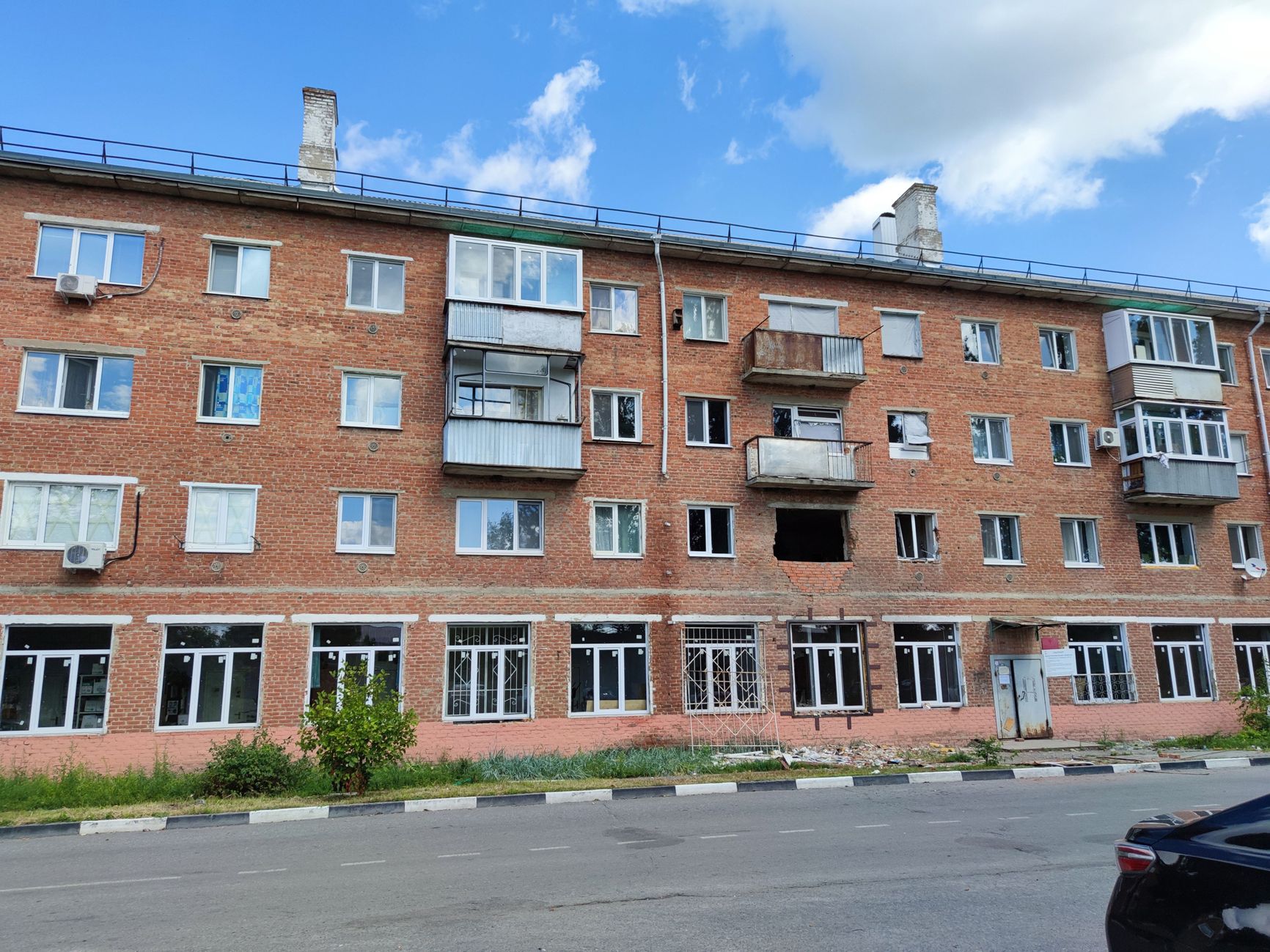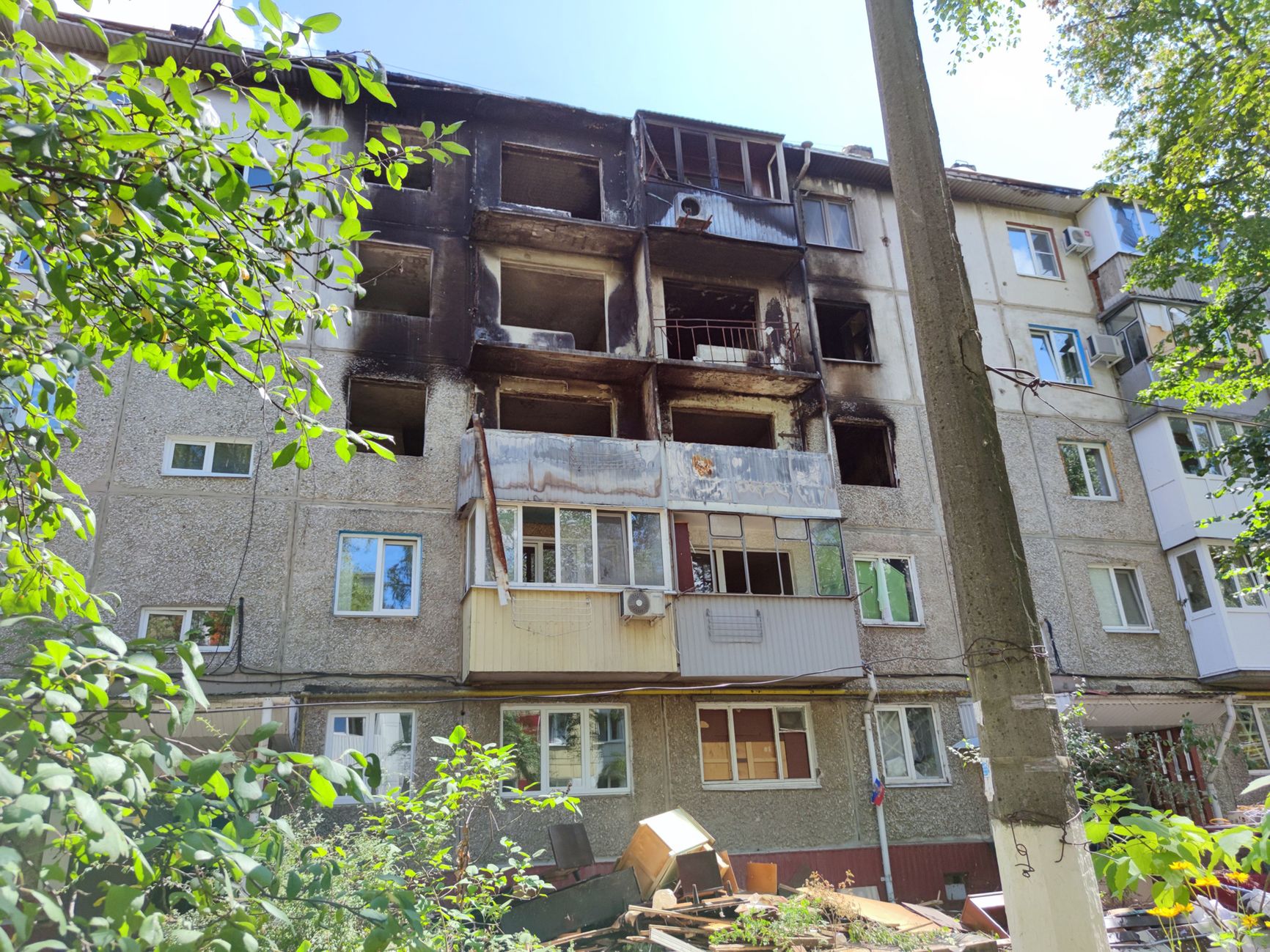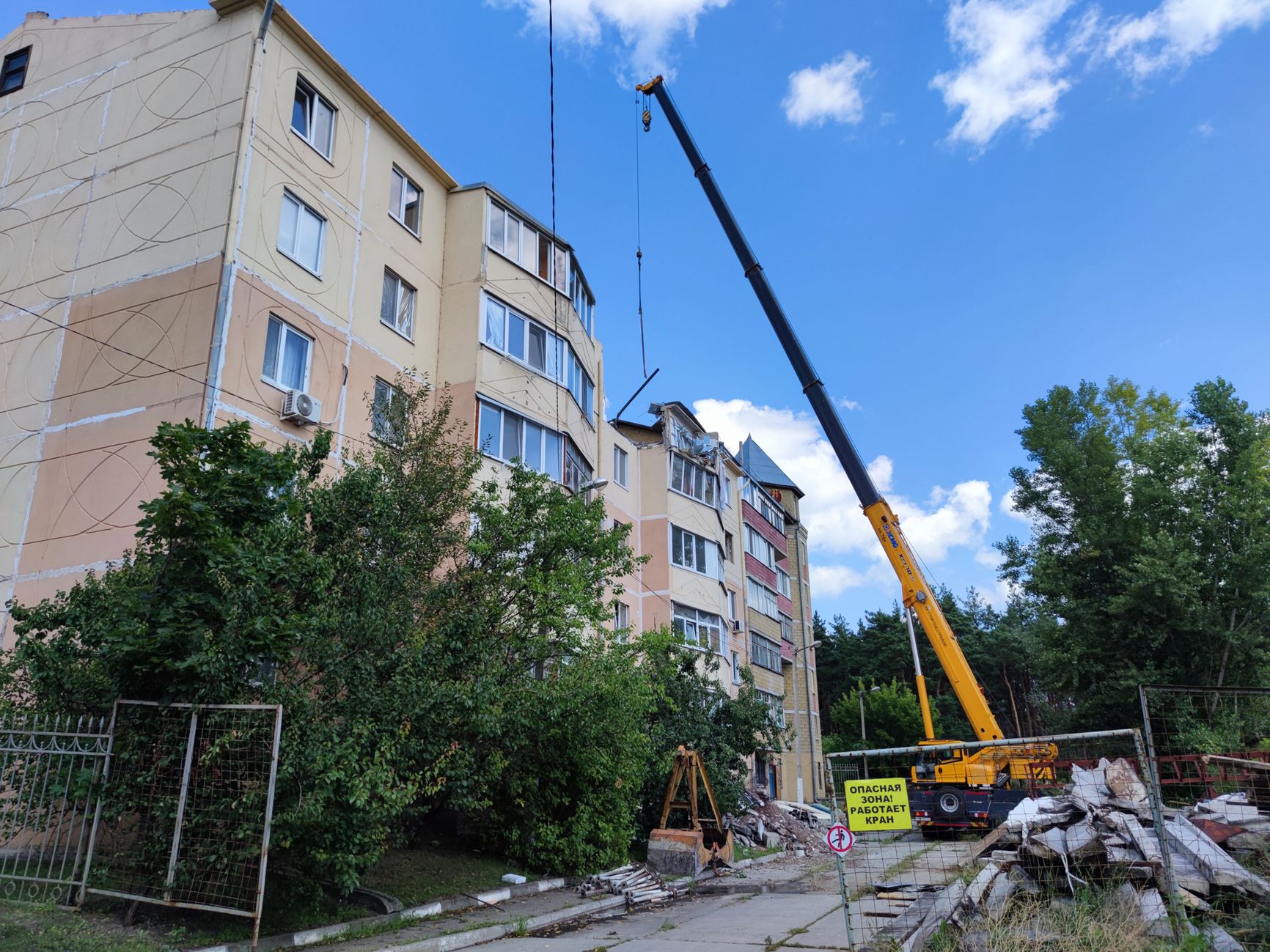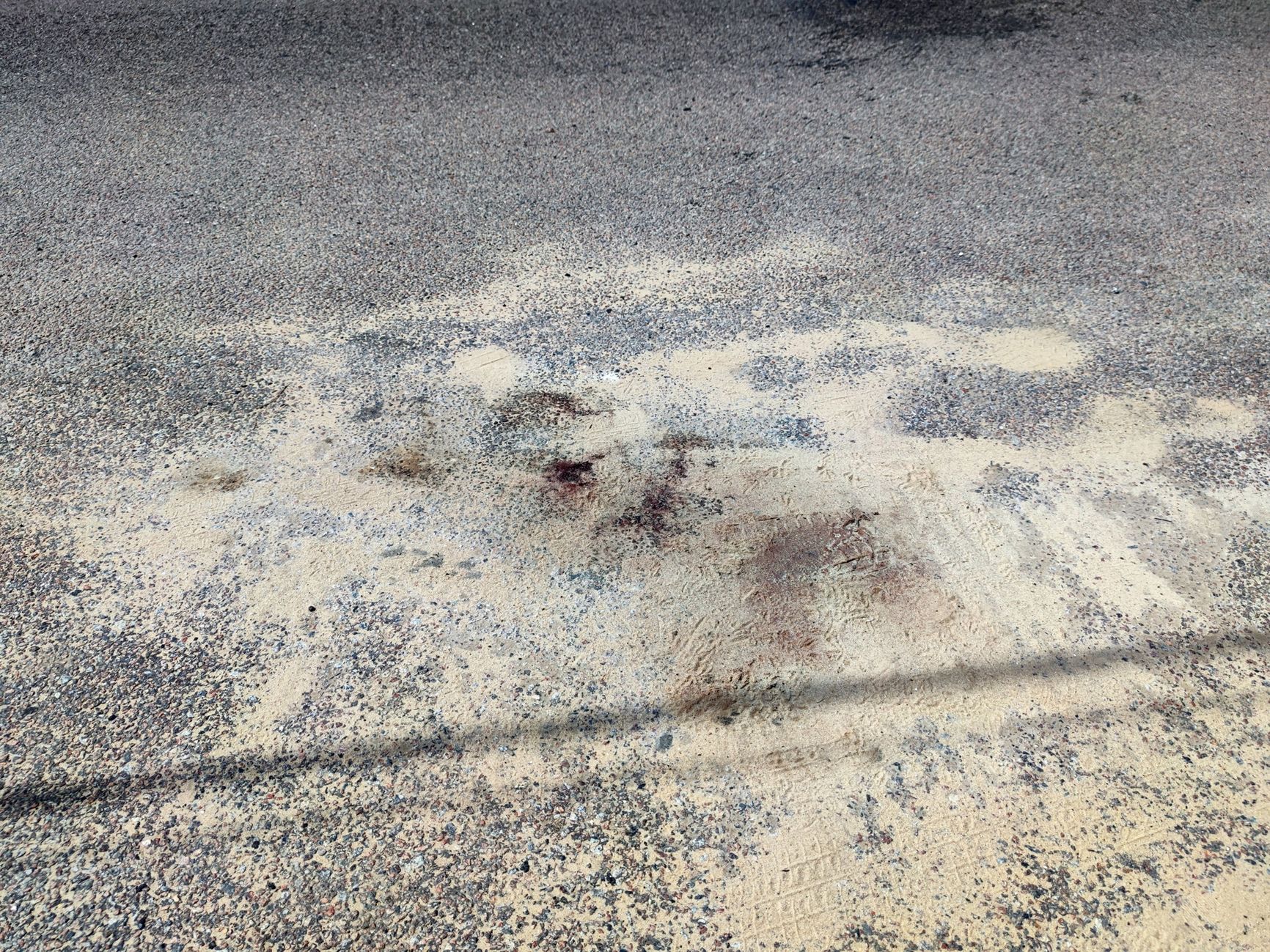

Following the shelling and subsequent evacuation, the border town of Shebekino in the Belgorod region is supposedly making a return to normal life, the authorities claim, with residents being encouraged to return. A correspondent from The Insider ventured into Shebekino and conversed with local inhabitants who had chosen to come back. This choice was made despite the ongoing shelling, the incomplete restoration of buildings, and the presence of 'Shelter' signs that at times point to structures reduced to rubble. Despite these challenges, the authorities are showing no urgency in delivering the pledged compensation of a few thousand rubles or aiding with apartment repairs. The expenses for the journey back from the far end of the country are similarly left uncovered. Notably, the 'Victory' sign has been reinstalled in central Shebekino. Nonetheless, local residents express their disillusionment with the authorities and their inability to fathom the objectives of the ongoing war.
Content
“If only we could salvage the TV”
“They simply covered the blood of the woman killed by Grad with sand”
“Should I return to Shebekino and die just so they'd pay something?”
“No one paid for the return tickets; they just told us to come back”
«Many people's positive view of the authorities was shattered»
There's a checkpoint at the approach to Shebekino, selectively scrutinizing those deemed suspicious. Olga, a resident of Shebekino accompanying us, proudly notes that she's escaped inspection so far. Upon entering the settlement, we lower the car windows to remain alert to potential gunfire and respond swiftly if needed.
Olga unfastens her seatbelt and encourages us to do the same, providing a quick briefing on what to do in case of shelling: “If something happens, we brake abruptly and exit the vehicle. It's doubtful the police will penalize us here for not wearing seatbelts.” While searching for a parking spot, Olga seems to sketch an imaginary path in the air—calculating a trajectory to safely position the car.
The first noticeable aspect in the town is the presence of new windows in houses: factory stickers still remain on almost half of them. These are apartments to which people have yet to return. New roofs are also visible – authorities have purchased the same gray metal tiles for everybody. If the roof is gray, it means the house was hit. There are lots of gray roofs.

In many houses, new double-glazed windows have replaced those shattered by explosions
The second observation upon arriving is the unpleasant odor of decay. This arises from spoiled goods in stores that suffered impacts. Passing by the burned-out Pyaterochka store requires either holding one's breath or possessing a strong stomach, as flies swarm around the building.
“If only we could salvage the TV”
Every ten minutes, Olga halts and gestures in a particular direction - indicating where, in her perspective, an impact could originate from. Quick decision-making about where to seek shelter is necessary, and understanding the source of enemy fire is paramount for this purpose. Now the town's residents no longer categorize areas as safe or perilous – shells could arrive anywhere without warning.
Now the town's residents no longer categorize areas as safe or perilous – shells could arrive anywhere without warning
We stroll along Parkovaya Street. In the past, no shells arrived here, and locals considered it a safe area. Olga herself sought shelter in these houses during shelling. In June, House No. 3 burned down after a rocket impact. We enter the courtyard. The sickly sweet smell of decay, which you gradually stop noticing, assaults your nose here with such intensity that your eyes begin to water. Broken furniture and decaying food lie beneath the windows: the residents of Shebekino hurriedly left their homes and cleared out their refrigerators. The walls on the upper floors are completely blackened; on one of the windows, there's the familiar crisscross pattern of tape meant to protect against glass shards in the event of an explosion nearby. On the ground-floor balcony of this same house, a man is speaking on the phone: “If only we could salvage the TV as well.” Right there, near the boarded-up window, a small Russian flag is fluttering.

In the distance, a solitary explosion echoes. My companion startles but doesn't duck.
“An airstrike?” I ask.
“Doesn't seem like it,” Olga thoughtfully responds, listening to the silence and then adds, “It's beyond the ribbon' <'ribbon' is a colloquial term for the border — The Insider>, I think. Or at the MAPP <border crossing point with Ukraine — The Insider>.”
We pass a multi-story building where a couple of upper floors are missing after the shelling. The area has been cordoned off, and a crane is in operation. An elderly woman is strolling nearby.
“I live on the third floor, and they're going to dismantle everything there,” she comments on the crane's work.
“When are they planning to restore it?”
“As things go forward, who knows,” the pensioner shrugs contemplatively, as if discussing someone else's house. “Right now, they're just taking it apart. They are going to start with the third floor, and what they're going to do below is still unknown.”
We continue walking while she stays behind, watching as the crane slowly approaches her apartment.

“They simply covered the blood of the woman killed by Grad with sand”
“As you drive in, you're met with this oppressive feeling of death. Everything is empty. You know, I'm familiar with how it's supposed to be: people waiting at that bus stop, cars passing by... But now, it's just emptiness, like death itself, not a single soul, damn it. And it's so suffocating, simply... terrible. During those months, whenever I entered this place, I would inevitably end up crying because the pain was just too much, an utterly dreadful state. I know that kids used to run around here all the time, those people with their dogs, the cyclists. That's how it was, damn it. But after the shelling - death, an absolute hush,” Olga laments. However, almost immediately, we encounter a family with a stroller heading towards us.
In Shebekino, things began to return almost to “normal” as early as July, following the announcement of the residents' return.
We proceed past the market. This area is often a target. Shebekino locals even prefer not to come here by car due to the high likelihood of shelling; walking is considered safer. Olga points out the exact location where a woman was killed by 'Grad' rocket shelling on July 16th. My companion is outraged that they didn't bother to clean the blood away, but rather just covered it with sand. Dark stains peek through the sand on the road. Close by, small asphalt dents reveal traces of impacts.

The blood of the woman killed by a rocket was just covered with sand.
We're at the market during working hours, yet almost all the shops are closed. Shebekino residents are afraid to come here. The authorities promised to reduce rent for stall owners, but as Olga explains, they still haven't done that. On the asphalt, an arrow is drawn, typically indicating the way to shops, but here the inscription is different: “Shelter.” It points to a building that has completely burned down.
The “Shelter” arrow on the asphalt points to a completely burned-down building
A few hundred meters from the market is a railway junction where tanks were unloaded at the beginning of the war. Olga speculates that this is why Ukrainians started shelling this area. However, she says military equipment is no longer brought here. She's obviously right: the rails are heavily overgrown.
We enter a grocery store — it's surrounded with sandbags, just in case of shelling. Olga takes a closer look at the barrier and smiles: “They used the mixture they usually spread in winter. Salt crystallized on the bags.” After buying what we need, she quietly mentions that she knows the cashiers — the home of one of them had been hit, and her father was injured.

The path from the store runs alongside fences. Olga points out that it's dangerous to walk here; there's nowhere to hide during shelling. She pities the store employees — they have to come here every day.
“Should I return to Shebekino and die just so they'd pay something?”
After the evacuation, the Shebekino authorities promised to pay 10,000 rubles to each local resident and 50,000 rubles to those whose property had been affected, as well as waive utility payments for those who left.
However, receiving the promised money has been a separate ordeal. Those Shebekino residents who weren't officially registered there had the least luck. Initially, they were outright denied payments. Later, the governor of the Belgorod region did promise the payments, but the procedure was only established on July 4th when the residents were already officially allowed to return.
Olga still hasn't managed to receive her money because she doesn't have a Shebekino registration. She speaks about this issue with particular emotion, gesticulating actively and raising her voice. She had to take out a loan of tens of thousands of rubles to move to a safe place. She exclaims, “What the *** do they mean when they say we are not supposed to receive any payments? Am I supposed to go to Shebekino and die just so they'd pay something to my children? I came to at least get the computers, because my kid has to go to school!”
The woman had to take out a loan of tens of thousands of rubles to move to a safe place
At the social services office, they requested a document confirming the residence of her underage child, but in the rush to evacuate under shelling, she hadn't taken the paper with her. Without it, her application for confirmation of her actual residence in Shebekino was rejected. She managed to restore the document a few weeks later. In mid-July, Olga learned that her application had been denied.
Upon reapplying, she wasn't allowed to supplement the previously submitted set of documents— she had to collect and fill out everything again from scratch.
Olga says that even many of those who have proper registration didn't receive their money. Authorities claimed they had sent money to old accounts, but it turned out there was no access to them. Now, supposedly, the money needs to be returned and transferred to the correct account. This takes time, and people need to rent apartments or simply make a living now, as many Shebekino residents are left without work.
Residents of Shebekino's suburbs weren't lucky either. Initially, not all the villages made it onto the lists, even though shelling was happening everywhere. Svetlana, a resident of one of the nearby villages, jokes that perhaps the governor's team, who came from other regions, had poor knowledge of the region's geography. Nonetheless, she now hopes to receive the compensation since her village was later added to the list.
“No one paid for the return tickets; they just told us to come back”
Svetlana is over 80 years old, but she hesitates to give her exact age. She left the Shebekino suburb even before the most intense shelling began. Now, she's returned from a temporary accommodation point in the Vladimir region. She mentions that she did it secretly from her relatives to avoid dissuasion. The pensioner didn't want to leave her home, but she has a chronic illness, and when the shelling started, pharmacies closed down, making it impossible to buy medication.
Throughout her time as a displaced person, Svetlana worried about her animals, which she had to leave at home.
“What if something bad happens? My dog and cats are here,” she says. “Even though they promised to feed them...”
“Did your neighbors promise to feed them?” I ask.
“Well... not exactly them,” the pensioner evasively answers. “There was this person who helped me collect scrap metal; I gathered it and sold it because my pension is very small. He promised to help with the animals too.”
Svetlana found life in the temporary accommodation point (TAP) unpleasant due to its uncleanliness. Surprisingly, even during the shelling of Shebekino, the town was tidier. Initially, the pensioner was placed in a TAP in Belgorod, where they set up beds for 350 people in a gym. But at least the food was good there, Svetlana says. In the subsequent TAPs, she didn't like the food at all; she had to buy groceries herself. Later, they were moved to Alexeyevka, a town in the Belgorod region, and then sent to Gus-Khrustalny.
“No one paid for the return tickets; they just told us to come back,” Svetlana complains. For a pensioner who collects scrap metal around the city, the sum of three thousand rubles to travel from the Vladimir region back home was significant.
«Many people's positive view of the authorities was shattered»
“In the center of Shebekino, they've restored the 'Victory' sign. Previously, it symbolized the Soviet Union's victory in World War II, but after the war with Ukraine started, it seems to have gained a new meaning for the authorities. So, they began to restore the plastic 'Victory' sign before repairing residential buildings. Graffiti of the elderly woman with a Soviet flag, whom Russian propaganda attempted to turn into a symbol of the war despite the fact that the Russian military destroyed her home, now adorns the facade alongside the 'Victory' sign.

Restoration of the 'Victory' sign began even before residential buildings were repaired
“Lying patients were evacuated from Shebekino's only hospital on May 30th. And on the night of the 30th to the 31st, the city was bombed. There was no warning, no evacuation was carried out, and people found themselves under Grad rocket fire,” Olga complains. “The situation with the payments also shattered many people's positive view of the authorities.”
We approach a tire service center. The five-story building across the street seems to have suffered a direct impact — a massive hole gapes in it. According to local channels, the owner of the affected apartment was told that only 'minor repairs' were needed and the rest would be taken care of by the contractor.

The authorities told the owner of the destroyed apartment that only “minor repairs” were required
A man standing nearby mistakes us for local administration workers and inquires whether the roof will be repaired. Upon learning that we have no connection with the authorities, the Shebekino resident begins to curse, saying that the administration is promising to 'only handle the heating system, windows, and roofs, and the rest is up to the residents.' My companion suggests he write to Vladimir Zhdanov, the head of the city district.
“Why bother writing to Zhdanov... He'll build a boulevard, and that's it,” the man waves his hand dismissively.
According to the residents, the authorities plan to transform the site of the police building destroyed by shelling into a boulevard.
“He was awarded the Order of Courage, and he couldn't care less about us,” another man standing nearby chimes in.
“Yes, he got the award for his silence,” Olga smirks.
They once again recall how before the heavy shelling, the authorities evacuated all the sick, yet they didn't warn the residents at all. Now, instead of repairing houses and streets, they're building dog parks. “A city for holiday-makers, damn it, just alleys,” the man summarizes.
Before the heavy shelling, the authorities evacuated all the sick, yet they didn't warn the residents at all
On the window of a nearby house, a Russian flag is seen stuck to the glass, and above it is a commonplace Shebekino practice — a cross made of tape to prevent shards from scattering due to an explosion.
“I still don't understand the goals of this war. What can you feel about something you don't understand? Confusion!” Olga responds when asked about her stance on the war. She doesn't want to talk further on this topic.
In one of the courtyards, several burned-out cars sit, while children play nearby. One of the boys says his mom told him not to get too close to the areas hit by shelling, but she still lets him play in the yard that was also targeted.

Olga says she would also give such instructions to children each time they went out, and she would find out in advance which specific area the kids were going to so that in case of shelling, she would know where to go pick them up.
“There's no safety here,” Olga concludes.
As we are leaving the town, we notice graffiti on a brightly orange food stall. It's hastily written with a black marker: “No to war.”
